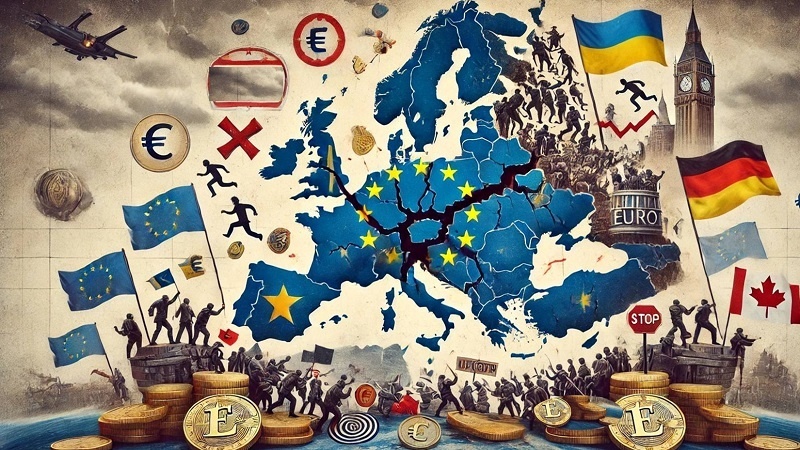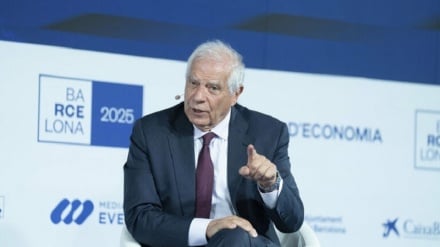A look at some factors of EU credit decline
Pars Today- The results of a study, done on behalf of the EU Commission, show that most of the European citizens are pessimistic about the future of the European Union. According to some of the news and comments, the global attitude has also become negative towards this union.
As per the opinion poll, conducted on behalf of the EU Commission, the credit of the European Union decreased %11 in Germany in May-November [2023] period and, for the first time, %48 of the German citizens consider the EU negatively. According to Pars Today, the EU credit has decreased in Estonia more than Germany, namely %13.
Cheap workforce challenge and illegal immigration
A German newspaper wrote, "According to a viewpoint, the decline of the EU credit among the German citizens is due to the fact the EU and the member states do not follow a common European immigration policy. Last year, nearly 380 thousand people entered the EU zone illegally which was the highest since 2016. The EU effort to find a formula to combat illegal immigration on the one hand and the cheap workforce recruitment on the other hand have yielded no fruit for years owing to various approaches of the member states.
Growth of populist currents
Mehr news agency recently announced in a report that crisis of refugees is not the only problem causing the EU to face a hard test. It is rather the populist parties across Europe which are flourishing and the terrible scenario of Brexit is also looming overhead for other EU member states.
Daily Mail newspaper wrote that when the British voted for exit from the EU on June 23, 2016, commentators warned that this change could have a domino effect in Europe to cause other countries to follow the same course.
Ukrainian crisis
Analysts maintain that another factor for dwindling of the global trust in the EU is the Ukrainian crisis. The Ukrainian crisis took place in the worst possible condition for Europe. It happened exactly when the EU was calmly getting out of the dire economic circumstances caused by Coronavirus. The Russian special operation in Ukraine has plunged the EU in a new shock.
According to this report, the Ukrainian conflict has divulged basic differences among the European countries and has caused a deep gap in their strategic prospect in three domains of joint defense policy, energy security in future and the monolithic stance of Europe against Russia.
Double standards vis-à-vis West Asia
According to Tass news agency, the Russian spokeswoman, Maria Zakharova, has said that, due to double standards of the EU towards the developments in Ukraine and West Asia, part of the majority of the world countries have lost their trust in this union.
Zakharova stated, "The EU double standards in foreign policy have always been criticized. The EU inconsistent and ideology-oriented foreign policy has caused its political identity to perish."
She added, "When the EU speaks about the war between Palestine and Israel, the EU foreign policy chief, Josep Borrell, does not haste to reach clear conclusion and does not accuse any side."
Inconsistency
The Austrian daily "Standard" has also considered nationalism and lack of accordance among European countries as the cause of reduction of the EU credit and decrease of the union's role in the global issues.
Economic weakness
Another factor for reduction of the EU global credit, according to the experts, is the unexpected low growth of the Euro zone economy. The EU Commission had already announced that Euro zone economy has grown less than expectations in 2024. The reason was the surge of prices and interest rate of the Central Bank of Europe which has caused confinement for accreditation.
In view of this, the executive body of the EU has forecast that the GDP of the 20 countries, using Euro as the common currency, will increase only %0.8 instead of %1.2 predicted in last November.
According to Paolo Gentiloni, Chairman of the EU Economic Commission, the EU economy grew very hard in 2023 and the prospect for the first quarter of 2024 is gloomy, too.
Key phrases: EU situation, European economy, Ukrainian war impacts, crisis in Europe, future of Europe
RM/UR



